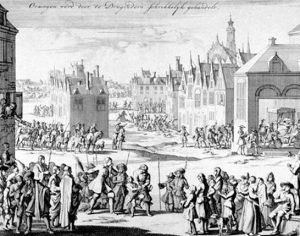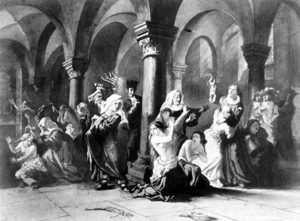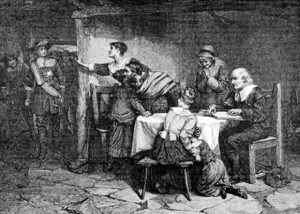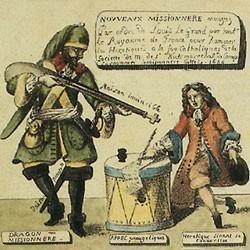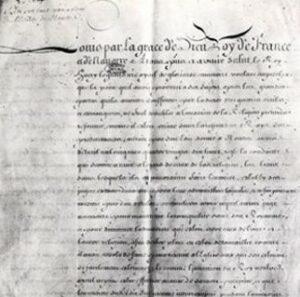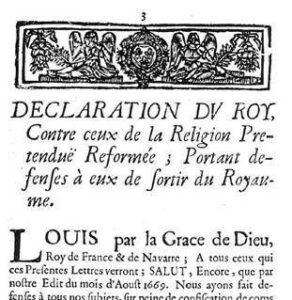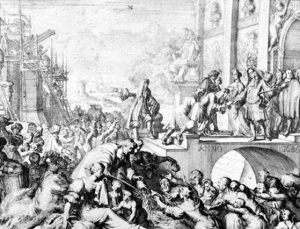The repressive measures
After enforcing the Edict of Nantes in a more and more restrictive way, and trying to get numerous conversions with the help of organisations for the spread of The Faith, the king resorted to more overtly repressive means.
The Reformed Protest ants were affected in both their civilian and professional lives. The measures against them were also about freedom of conscience and religious practice.
Political and professional life :
- Protestants were gradually expelled from judicial and municipal jobs ;
- The courts where Protestant and Catholic magistrates had equal numbers of seats were abolished ;
- Protestant craftsmen were denied the right to practice trades ;
- Members of the Academy of Painting and Sculpture had to recant or resign ;
Freedom of conscience and religious practice :
- Catholics are not allowed to convert to Protestantism ;
- Children’s conversion was valid from as young as age seven ;
- Numerous churches were closed and pulled down ;
- Restrictive regulations for worship ;
- Pastors were forbidden to perform their duties outside their place of residence ;
- Theological schools were gradually abolished (Sedan in 1681, Saumur in 1685) ;
- Protestant cemeteries were closed in towns where religious practice had been banned ;
From verbal to physical violence
As legal means proved insufficient, those in power resorted to violence. Infantry divisions, king’s dragoons were used to force Protestants to recant.
On March 18, 1681, Louvois, the Secretary of State for War, allowed the use of “dragonnades” against Protestants.

